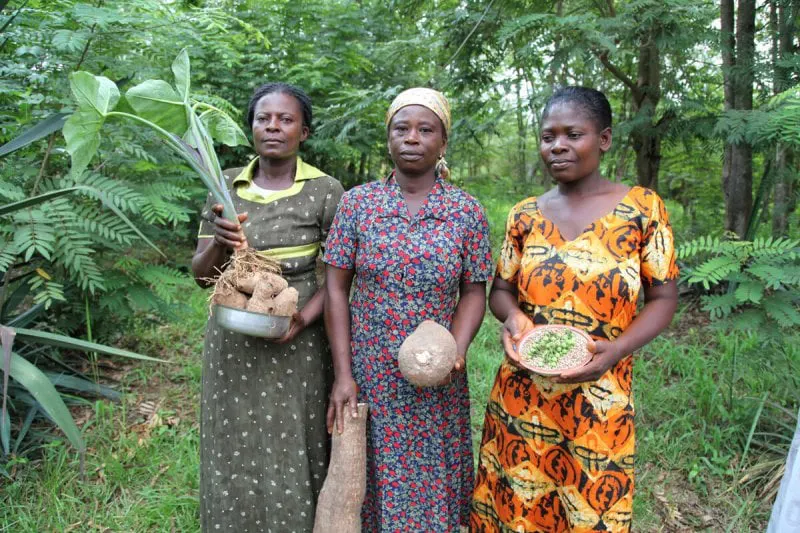‘My position is not ideological’: Why some agroecology advocates accept GM crops and synthetic pesticides
‘My position is not ideological’: Why some agroecology advocates accept GM crops and synthetic pesticides


[Head of advocacy and programs at the Peasant Farmers Association of Ghana, Dr. Charles Nyaaba] said that modern technological inventions, including synthetic fertilizers and pesticides, can be applied even in agroecological production, as long as the fundamental principle of protecting the environment is not violated.
“There is a clear distinction between agroecology farming and organic farming,” explained Nyaaba.
…
His stance marks a departure from the approach promoted by the Food and Agricultural Organization (FAO), the Alliance for Food Sovereignty in Africa (AFSA) and international aid organizations like ActionAid and Oxfam.
…
On its website, AFSA’s list of agroecology principles include championing small African family farming/production systems based on agroecological and indigenous approaches …. rejecting the genetic engineering and privatization of living organisms.
Nassib Mugwanya, a Ugandan agricultural communications specialist …. believes the wholistic definition of agroecology creates an opportunity to embrace emerging technologies, such as genetically modified (GM) seeds. “For example, what agroecology cares about today is to minimize damage to the environment,” Mugwanya said. “What if I tell you about the GM crop that has been engineered to reduce pesticide application? …. That is the conversation I want to hear, which is rooted in the contextual realties of what farming is in Africa.”
…
Nyaaba added: “Just as conventional agriculture is evolving, we keep getting new technology in agroecology, too. Personally, my position on agroecology is not ideological. It is flexible.”
Read the original post

 | Videos | More... |

Video: Nuclear energy will destroy us? Global warming is an existential threat? Chemicals are massacring bees? Donate to the Green Industrial Complex!
 | Bees & Pollinators | More... |

GLP podcast: Science journalism is a mess. Here’s how to fix it

Mosquito massacre: Can we safely tackle malaria with a CRISPR gene drive?

Are we facing an ‘Insect Apocalypse’ caused by ‘intensive, industrial’ farming and agricultural chemicals? The media say yes; Science says ‘no’
 | Infographics | More... |

Infographic: Global regulatory and health research agencies on whether glyphosate causes cancer
 | GMO FAQs | More... |

Why is there controversy over GMO foods but not GMO drugs?

How are GMOs labeled around the world?

How does genetic engineering differ from conventional breeding?
 | GLP Profiles | More... |

Alex Jones: Right-wing conspiracy theorist stokes fear of GMOs, pesticides to sell ‘health supplements’




 Trust issues: What happens when therapists use ChatGPT?
Trust issues: What happens when therapists use ChatGPT? Fighting deforestation with CO2: Biotechnology breakthrough creates sustainable palm oil alternative for cosmetics
Fighting deforestation with CO2: Biotechnology breakthrough creates sustainable palm oil alternative for cosmetics California, Washington, Oregon forge immunization alliance to safeguard vaccine access against federal undermining
California, Washington, Oregon forge immunization alliance to safeguard vaccine access against federal undermining Viewpoint — Fact checking MAHA mythmakers: How wellness influencers and RFK, Jr. undermine American science and health
Viewpoint — Fact checking MAHA mythmakers: How wellness influencers and RFK, Jr. undermine American science and health 30-year-old tomato line shows genetic resistance to devastating virus
30-year-old tomato line shows genetic resistance to devastating virus Viewpoint: Video — Big Solar is gobbling up productive agricultural land and hurting farmers yet providing little energy or sustainabilty gains
Viewpoint: Video — Big Solar is gobbling up productive agricultural land and hurting farmers yet providing little energy or sustainabilty gains The free-range chicken dilemma: Better for birds, but with substantial costs
The free-range chicken dilemma: Better for birds, but with substantial costs ‘You have to treat the brain first’: Rethinking chronic pain with Sanjay Gupta
‘You have to treat the brain first’: Rethinking chronic pain with Sanjay Gupta
